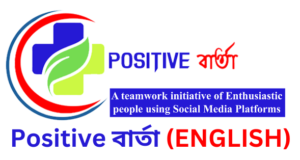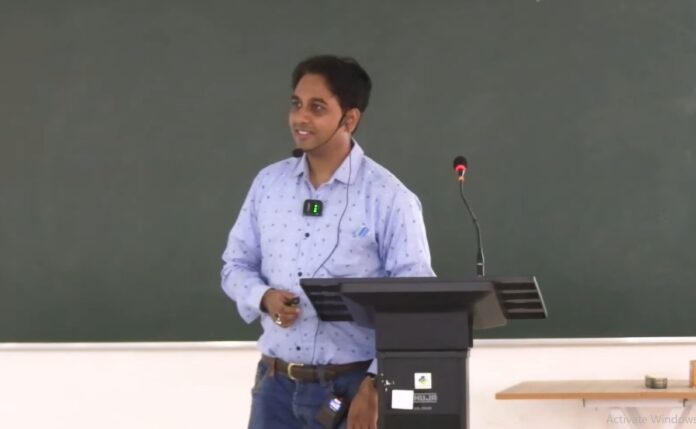Groundbreaking Microbiology Lecture and Classroom: In an insightful and highly engaging lecture today, Dr. Indraneel Saha, a renowned microbiologist and researcher, delivered a thought-provoking talk and classroom demonstration on the subject of microbiology at Santiniketan Medical College & Hospital. The event, aimed at enhancing the understanding of medical students and professionals, focused on the critical role microbiology plays in modern medicine and various other fields, including agriculture, biotechnology, and environmental science.
The Relevance of Microbiology in Modern Medicine
Dr. Saha began the lecture by emphasizing the importance of microbiology in the healthcare sector. He pointed out that the study of microorganisms—bacteria, viruses, fungi, and protozoa—is pivotal not only for diagnosing and treating infectious diseases but also for understanding the body’s immune responses, developing vaccines, and pioneering medical research. He explained, “Microbiology is foundational to medicine because it helps us understand the very agents that cause disease and enables us to develop strategies to combat them effectively.”
The lecture covered a wide array of topics, including the current advancements in microbiological research, such as genetic engineering, antibiotic resistance, and novel therapeutic approaches to microbial infections. Dr. Saha highlighted the integral role of microbiologists in shaping the future of public health, citing the success of vaccines in eradicating diseases like smallpox and polio, as well as the ongoing efforts to combat antibiotic resistance, a growing global health concern.
Classroom Demonstration: A Hands-On Approach to Microbial Research
Following the lecture, Dr. Saha conducted an interactive classroom demonstration, which was a key feature of the event. The students had the opportunity to witness firsthand the practical applications of microbiological techniques in a laboratory setting. Dr. Saha walked the students through various experimental procedures, including bacterial culturing, antibiotic sensitivity testing, and the use of microscopes to examine microbial specimens.
The demonstration included a live session on antibiotic susceptibility testing (also known as the Kirby-Bauer test), where Dr. Saha illustrated how microbiologists determine which antibiotics are effective against a particular bacterial strain. He explained the significance of this process in prescribing the right antibiotics to patients, especially in the face of rising antibiotic resistance. “In the coming decades, this will be one of the most important tasks of microbiologists. Understanding and preventing antibiotic resistance will be critical to the future of medicine,” he said.
Dr. Saha also introduced the students to the world of molecular microbiology, explaining techniques such as Polymerase Chain Reaction (PCR) and genomic sequencing that are revolutionizing the way we understand microbial genetics. He emphasized the role of advanced tools like CRISPR in gene editing, which has the potential to revolutionize microbial research and therapy.
Current Trends in Microbial Research
A significant portion of the lecture was dedicated to discussing the latest trends and breakthroughs in microbiological research. Dr. Saha spoke about the challenges posed by emerging infectious diseases such as COVID-19 and the need for rapid diagnostic tools and vaccines. He noted that the COVID-19 pandemic had underscored the critical need for a global effort in microbial research, from vaccine development to diagnostic testing, and he praised the scientific community’s response in combating the pandemic.
In addition to viral diseases, Dr. Saha also highlighted the growing concern of antimicrobial resistance (AMR). He explained how overuse and misuse of antibiotics are leading to the rise of drug-resistant pathogens, making it increasingly difficult to treat common infections. “The emergence of superbugs—bacteria that are resistant to multiple antibiotics—is one of the greatest challenges we face in healthcare today. Microbiologists are at the forefront of finding solutions to this crisis,” he stated.
One of the key takeaways from his discussion was the potential of genomic sequencing and metagenomics to identify new microorganisms, study microbial communities, and understand their role in human health. With the increasing availability of high-throughput sequencing technologies, microbiologists can now identify pathogens faster, map their genetic makeup, and track outbreaks in real time.
Career Opportunities in Microbiology
Towards the end of his session, Dr. Saha took time to encourage the students by sharing insights into the career opportunities available in microbiology. He explained that microbiology is not only confined to hospitals and research labs but also offers diverse career paths in biotechnology, pharmaceuticals, agriculture, and environmental science.
“Microbiology is one of the most dynamic fields with a wide array of applications. From developing new antibiotics and vaccines to creating sustainable agricultural solutions, the possibilities are endless. I urge you all to consider the many opportunities that await you in this exciting field,” Dr. Saha said.
He also mentioned the growing importance of interdisciplinary work in microbiology, where professionals from diverse fields such as bioinformatics, epidemiology, and environmental science collaborate to tackle global health challenges. “The future of microbiology lies in collaboration, innovation, and interdisciplinary research. If you want to make a significant impact, it’s important to embrace a broader approach,” he advised.
Interactive Q&A Session
Following the demonstration, Dr. Saha engaged in a lively Q&A session with the students, answering questions ranging from the ethical implications of gene editing technologies to the challenges of diagnosing rare infectious diseases. The students raised several thought-provoking questions, which Dr. Saha addressed with thorough explanations and real-world examples.
Some of the notable questions included inquiries about the potential of gene therapy in treating genetic disorders caused by microbial infections, the ethical considerations of CRISPR-based technologies, and the challenges faced by microbiologists in combating emerging diseases in the age of globalization.
Dr. Saha’s answers were not only informative but also inspiring, as he encouraged students to pursue research that pushes the boundaries of conventional knowledge and to stay curious about the ever-evolving world of microbiology.
A Powerful Conclusion
In his closing remarks, Dr. Saha emphasized the importance of curiosity and continuous learning in the field of microbiology. “Science is a journey, not a destination,” he said. “It requires dedication, persistence, and an unyielding desire to discover. As you move forward in your careers, remember that every answer opens up more questions, and it’s in the pursuit of these questions that true scientific discovery lies.”
The event concluded with Dr. Saha thanking the faculty, students, and staff of Santiniketan Medical College & Hospital for their enthusiasm and engagement. The students left the lecture hall not only with a deeper understanding of microbiology but also with a renewed passion for pursuing careers in the life sciences.
Acknowledging the Importance of Education and Collaboration
Dr. Saha’s lecture at Santiniketan Medical College & Hospital underscored the crucial role of education and collaboration in advancing the field of microbiology. By combining theoretical knowledge with practical demonstrations, he was able to offer students a comprehensive learning experience. His emphasis on the significance of interdisciplinary research and the need for innovation in combating global health issues left a lasting impact on everyone in attendance.
The event served as a reminder of the immense potential that microbiologists have in shaping the future of medicine, public health, and the environment. As Dr. Saha aptly put it, “The future of science depends on the minds of young researchers who are willing to challenge the status quo and explore the unknown.”
Contact Information
Santiniketan Medical College & Hospital
Phone: 03463-255-678
Email: info@smch.edu
Website: www.smch.edu








[…] Read More: Groundbreaking Microbiology Lecture and Classroom Demonstration by Dr. Indraneel Saha at Santiniketa… […]
[…] Read More: Groundbreaking Microbiology Lecture and Classroom Demonstration by Dr. Indraneel Saha at Santiniketa… […]